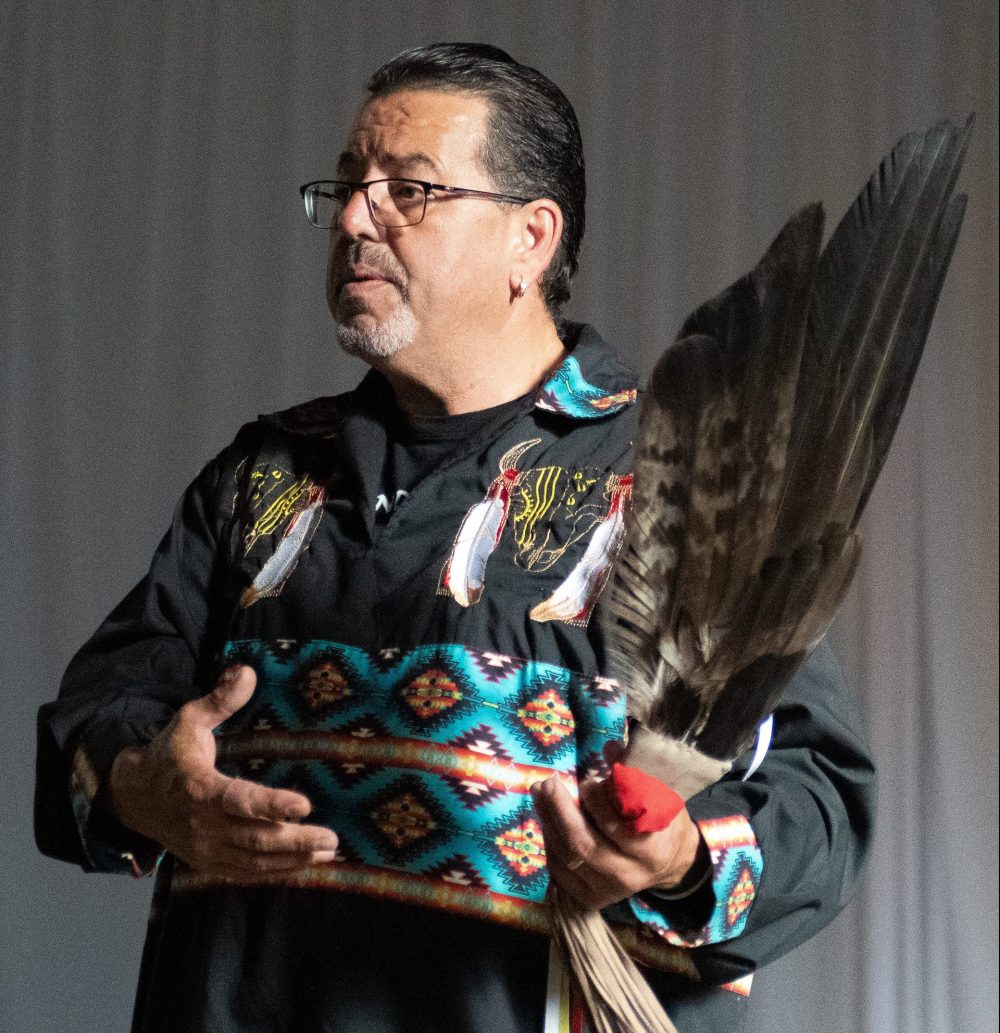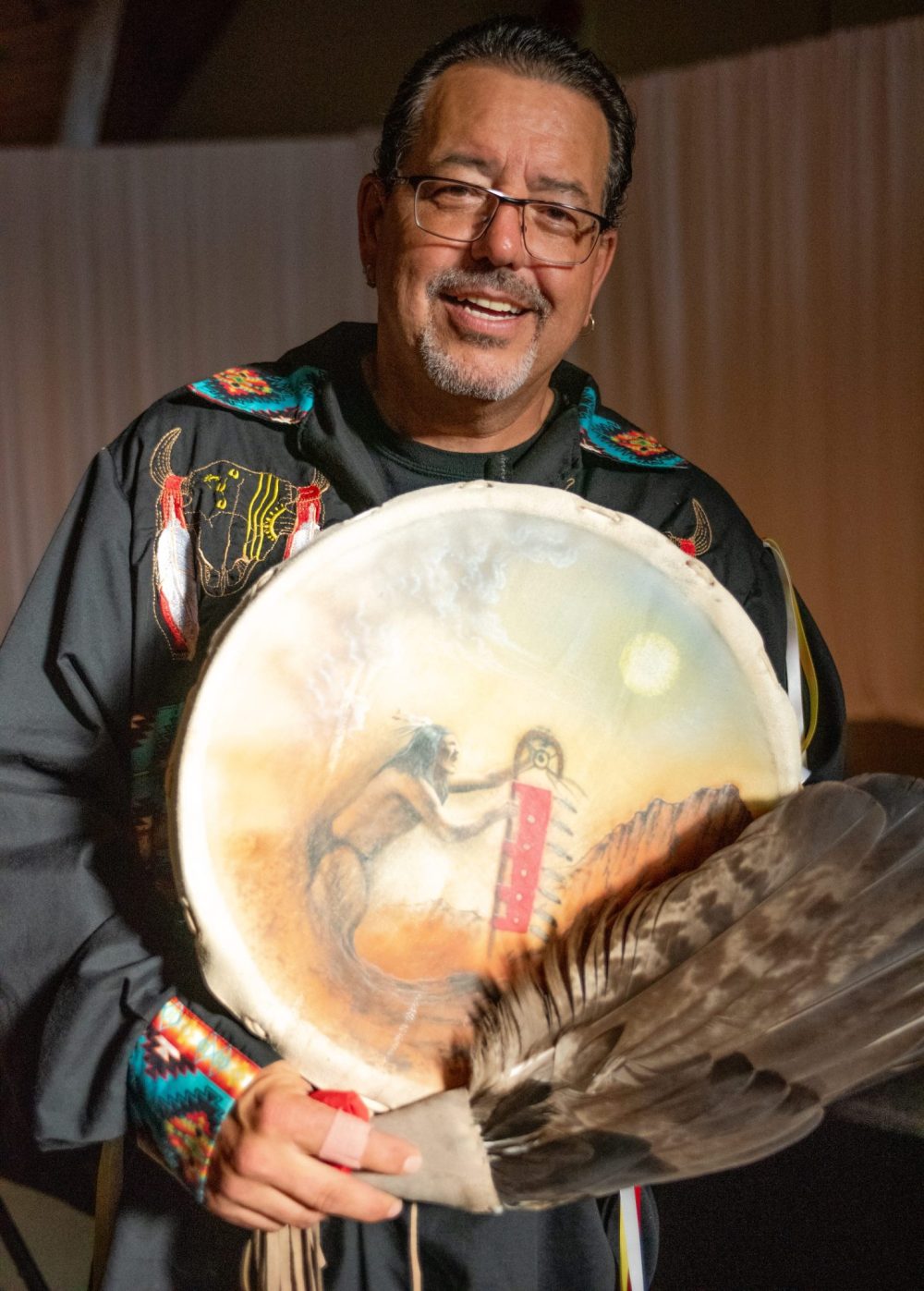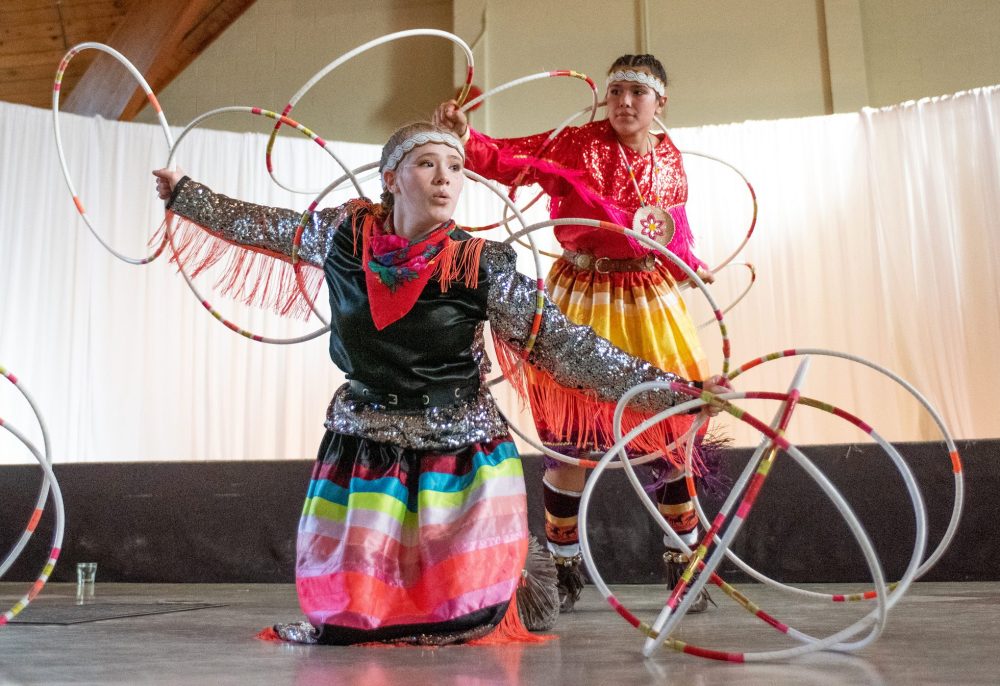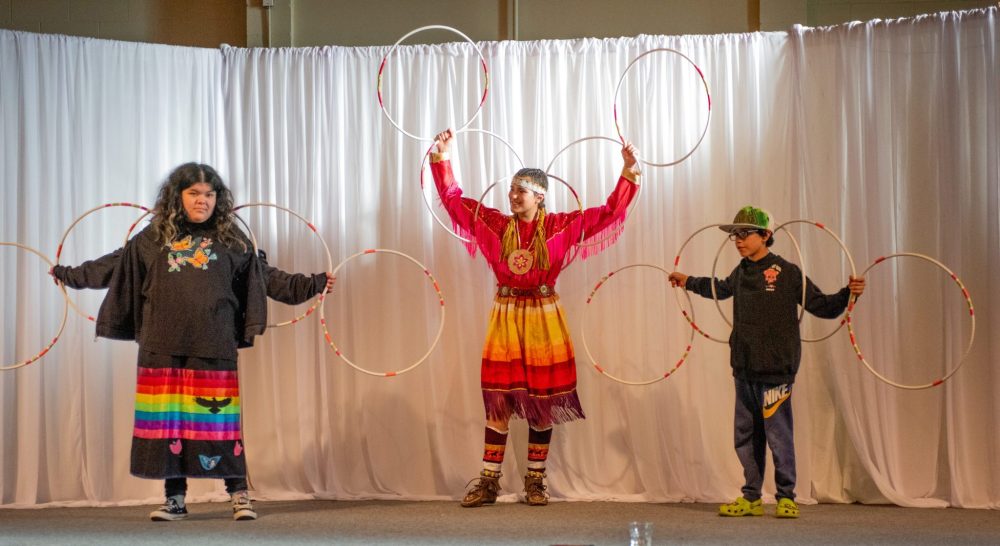Indigenous stories and culture shared at MHV
Advertisement
Hey there, time traveller!
This article was published 11/06/2024 (391 days ago), so information in it may no longer be current.
A small crowd listened with keen interest and smiles on their faces as Indigenous helper Cory Campbell played the drum and sang a song.
Campbell was asked to share stories about Indigenous life and culture at the Mennonite Heritage Village earlier this week by the Hanover Teachers’ Association.
“I really hope that folks are here to learn in general. There are a lot of parents, grandparents, students who are really curious, who want to learn and who are asking us for these opportunities. As a teachers’ association, we want to give back to the community and provide these sorts of opportunities for folks to come together,” said Monica Martens, Indigenous advocacy chair for the Hanover Teachers’ Association.
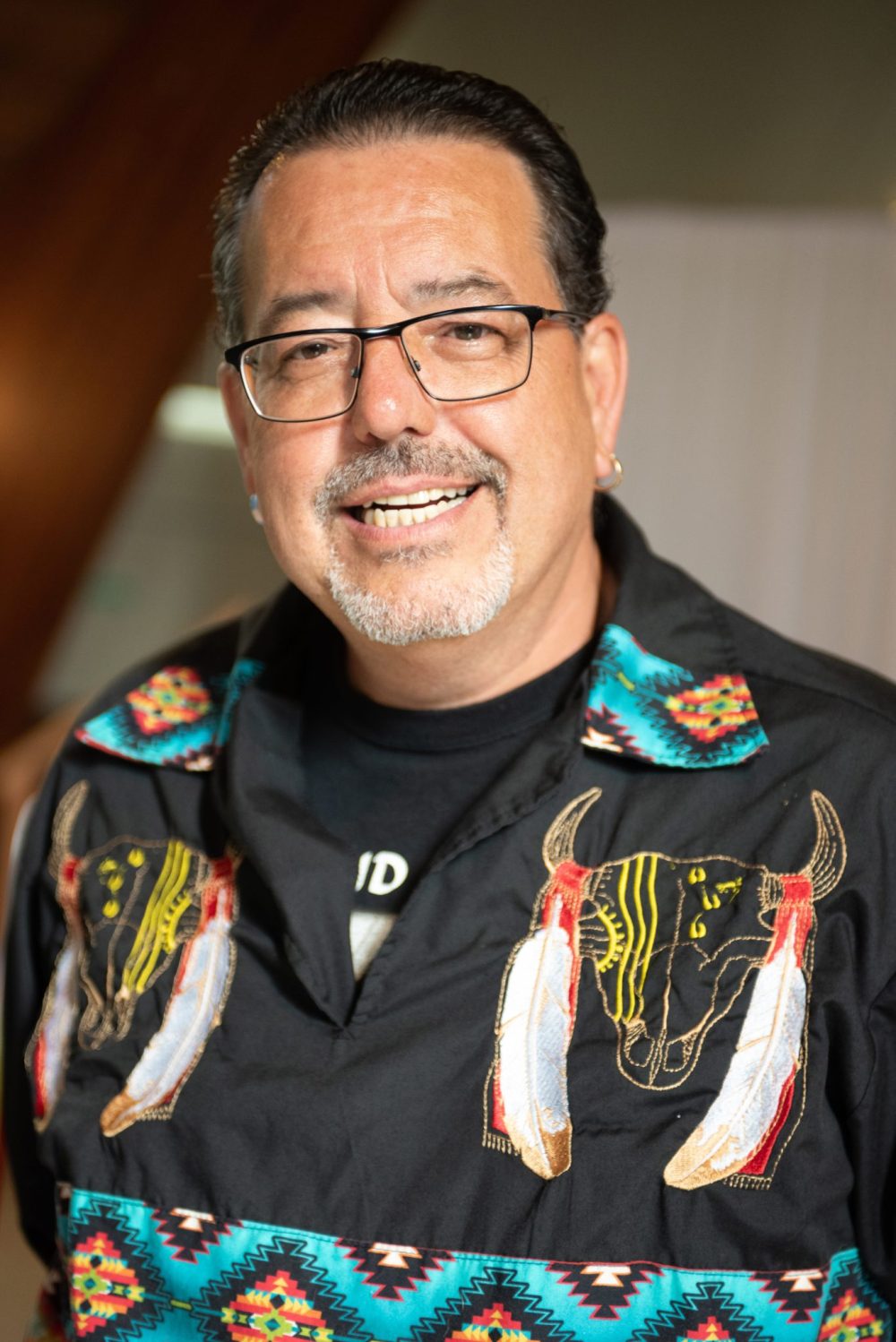
The association has put on free events such as this in the past for people who want to learn about indigenous culture. In March, it held a beaded lanyard making workshop and last fall it held a workshop on traditional medicines.
Campbell shared his stories with humour, which made the learning entertaining.
“I’m not here to convert anybody. I’m not here to espouse something that is better. My firm and absolute belief is that God was kind enough to give us all these differences. Because God also gave us volition and choice and to be able to choose is, I believe, contributes to a person’s adaptability and ability to evolve and to grow not only as a human.
“One of the things that is very big for me is particularly working with young people helping them understand who they are as a person but also as a people. Identity is really important. We have our self identity but also our community and where we come from.”
Campbell said once he found ceremony he found what he was looking for at age 18. He said ceremony plays a big role in Indigenous life.
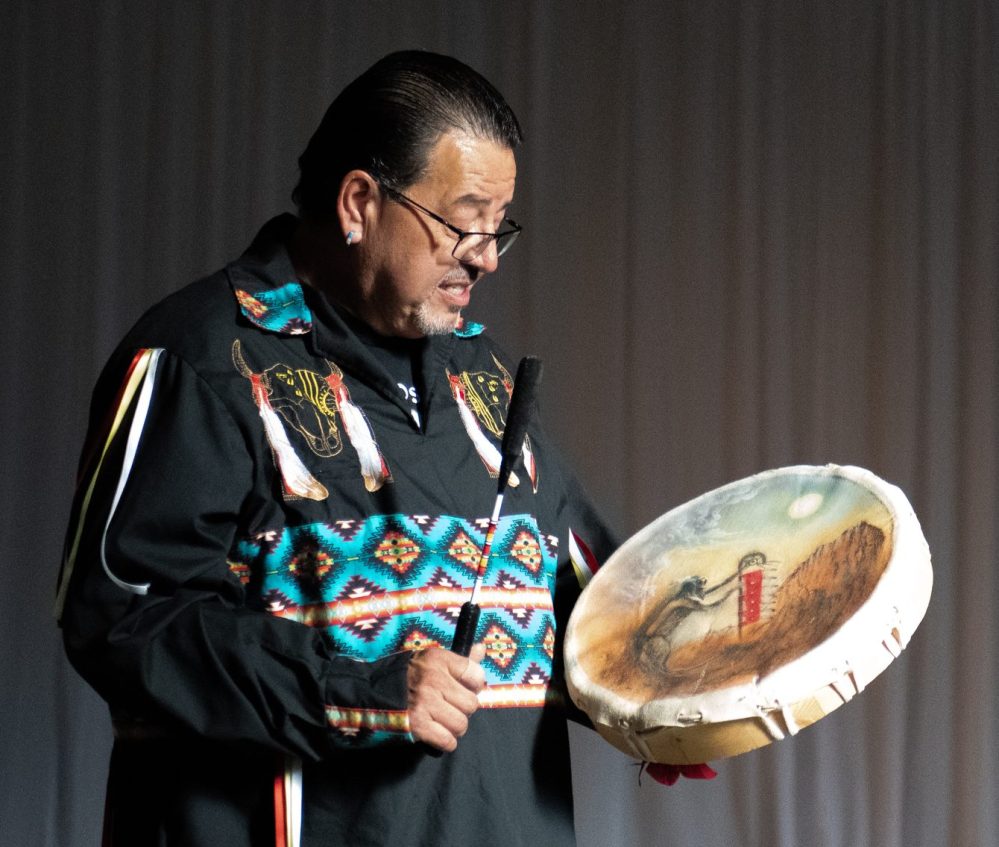
“Very much so. Because I think that I would absolutely argue that indigenous peoples are very much about relationship. We have a relationship with everything and anyone who’s farmed can speak to the relationship they have with their crop, with the soil, with the water even if it means moving the water…That’s one of the ideas of our ceremony really incorporates – I believe that every ceremony you go to church and whoever is up front is developing a relationship with the congregation and with the people that are there and that is so powerful.”
Campbell said the Southeast is very progressive when it comes to Indigenous based education. Martens noted that teachers in Hanover use the provincial Mamàhtawisiwin framework when teaching, which incorporates Indigenous culture and history into the classroom. Campbell said the sweat lodge and sun dance teachings of math (a circle is 360 degrees) and science (water has hydrogen and oxygen and steam in the sweat lodge has more oxygen in it than the air outside) can be used in conjunction with classroom teachings. Aside from sun dance and sweat lodge teachings, Campbell said his other top teaching is how we bridge gaps and how we identify where we’re more alike than we are different.
“But to say I respect you. Simply that. You’re a human being who deserves respect and that’s all I need to say as opposed to accept. When we accept something it means that there’s something that is inherently creating some form of conflict within us where we have to choose. So to be able to say I respect you. I respect your choices. I respect your stance. I respect your opinions. I respect your way of life. That’s one of the things that I think is absolutely vital to this whole reconciliation process.”
